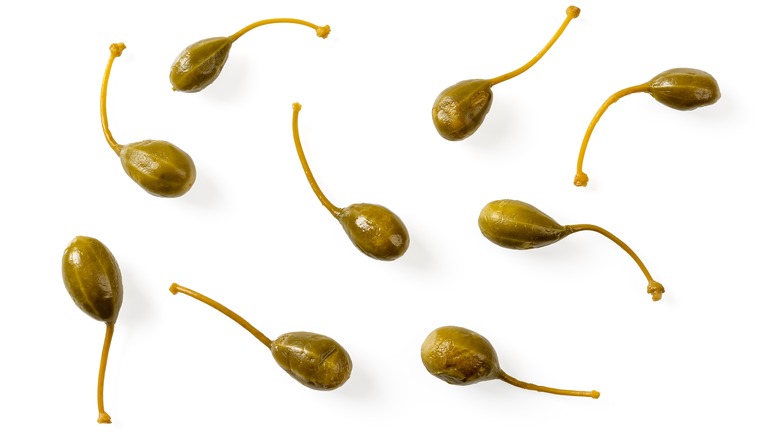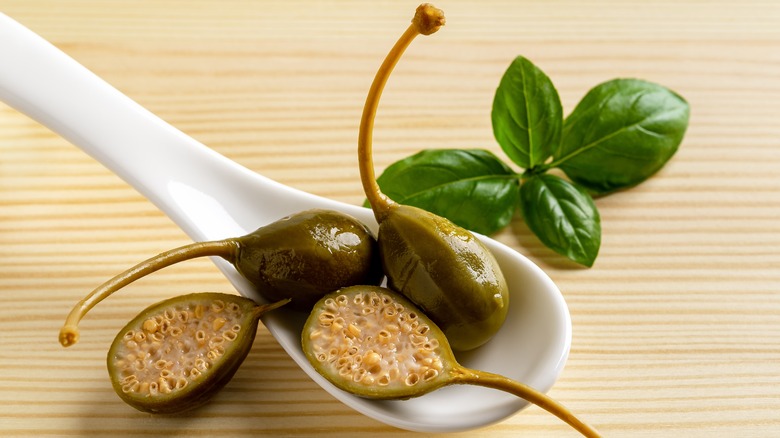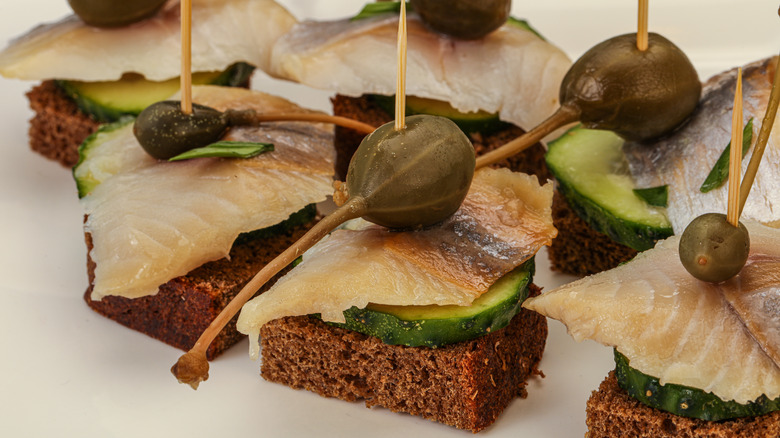The Little-Known Ingredient That Can Replace Olives In Any Situation
We may receive a commission on purchases made from links.
Olives tend to be one of those "love them or leave them" ingredients. It's rare to hear somebody say they're neutral on olives. In fact, there's a whole tv show theory based around people either loving olives or not. For those of us who love olives but are cooking for those who don't (it's a tough job, but somebody's got to do it), there's a special ingredient that checks all the boxes of olives without actually being an olive. Salty? Check. Similar size and shape? Check. Savory, fruity, briny? Check, check check. We're talking about caperberries. Not capers, the tiny pops of briny goodness found in a glorious chicken piccata, but caperberries. Caperberries are the more mature, more subtle cousin of capers. They're not so much a replacement for olives as a complex and savory ingredient unto themselves. In fact, their size, shape, and flavor profile makes them especially adept at becoming a substitute.
Caperberries Explained
Caperberries are what happens when capers are allowed to fully grow. They are the immature bud (caper) and fruit (caperberry) of the plant capparis spinosa. The plant thrives well and is often found in the Mediterranean region. Capers are small and round whereas caperberries are sort of oblong and similar in shape and size to an olive. Caperberries are also preserved (capers and caperberries are both pickled) and usually served on the stem. What's interesting about capers and caperberries is how dissimilar they are when it comes to not only look, but taste. Sure, they are both pops of savory, umami flavor and the same army green hue but that's where the similarities end. Where capers have a salty, acidic punch, caperberries are generally a little smoother and more mellow. They're fruitier and can be served whole or sliced. Altogether, the caperberry tastes fruity, briny, a little salty, and generally ideal for substituting in any olive situation.
Yes, All Heroes Wear Cape(rberrie)s
Caperberries and their brine are delicious in a martini for a happy hour patron who wants the full dirty (or clean) martini experience without the extreme olive flavor. The martini will get a kick of savory flavor and a smooth, pleasantly sour tang from the caperberry brine and the savory bite of the caperberry itself. However, the fruit is so subtle compared to many olives that the martini itself won't be super salty or acidic. They are also delicious as garnishes for a savory Bloody Mary. Caperberries are adaptable enough to be used in recipes commonly call for capers. Caperberries are a natural fit in chicken dishes where capers are often used – just slice the caperberries and add them as you would capers. Use them to make a savory raw sauce for tuna steaks or punch up your favorite pesto with their salty and savory flavor. Now that you're intrigued, you'll be happy to know you can order them online or sometimes find them at specialty food stores. They're worth the time to hunt down.


